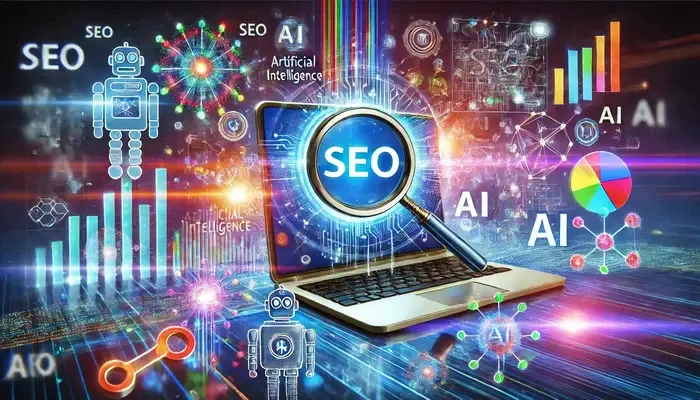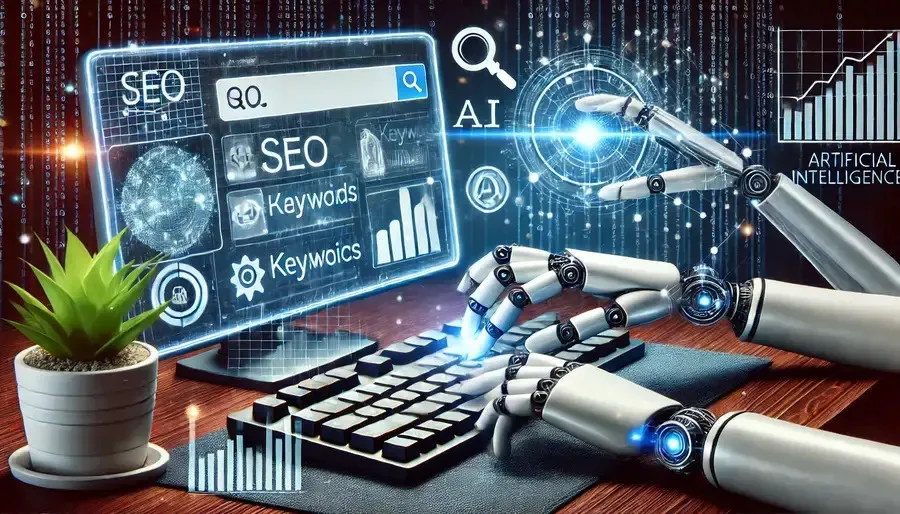
SEO and Artificial Intelligence: How New Technologies Are Changing the Rules of the Game
The dynamic landscape of Search Engine Optimization (SEO) is continuously evolving, influenced by technological advancements. Among these, Artificial Intelligence (AI) stands out, redefining strategies and methodologies within SEO. This article delves into the profound impact AI has on SEO, explores emerging technologies, offers practical implementation tips, and discusses the benefits and challenges of integrating AI into SEO practices.
How AI is Changing the Methods of SEO
Artificial Intelligence has revolutionized SEO by enhancing how search engines interpret and rank content. Traditional SEO relied heavily on keyword optimization and backlink building. While these elements remain important, AI introduces a layer of sophistication in understanding user intent and content relevance. Google’s AI algorithms, like RankBrain and BERT, focus on natural language processing (NLP) to comprehend search queries better, thus improving search results’ accuracy and relevance.
AI-powered tools enable SEO professionals to analyze vast amounts of data swiftly, uncovering patterns and insights that inform strategy. Predictive analytics, powered by AI, can forecast trends, helping marketers stay ahead of the curve. This shift towards data-driven decision-making ensures that SEO strategies are not only reactive but also proactive, anticipating user needs and behaviors.
New Technologies in SEO Based on AI
Several cutting-edge technologies, underpinned by AI, are transforming SEO practices:
- Voice Search Optimization: With the rise of virtual assistants like Alexa and Siri, optimizing for voice search has become crucial. AI helps in understanding conversational queries, which are typically longer and more complex than typed searches.
- Content Generation: AI-driven content creation tools can produce high-quality articles and blog posts, optimized for SEO. These tools analyze top-performing content, extracting essential elements to create new, engaging material.
- User Experience (UX) Enhancements: AI algorithms assess user interactions with websites, identifying areas for improvement. Enhancing site speed, mobile-friendliness, and navigation improves overall user experience, which is a critical ranking factor.
- Personalization: AI personalizes the search experience by delivering tailored content based on user preferences, location, and search history. This personalized approach increases engagement and satisfaction, positively impacting SEO.

Practical Tips for Implementing AI in SEO
Implementing AI in your SEO strategy can significantly enhance effectiveness. Here are some practical tips:
- Leverage AI-Powered SEO Tools: Utilize tools like SEMrush, Ahrefs, and Moz that integrate AI for keyword research, backlink analysis, and competitor insights.
- Content Creation: Use AI for generating content. For instance, Casino Go, an online casino, can employ AI to create engaging, SEO-friendly articles, ensuring consistency and quality across its content.
- Optimize for Voice Search: Structure your content to answer common questions and include long-tail keywords that mimic natural speech patterns.
- Enhance User Experience: Employ AI to analyze user behavior on your site. Identify pain points and optimize your website accordingly to improve engagement and reduce bounce rates.
- Monitor and Adjust: Continuously monitor AI-generated insights and adjust your strategies based on performance data. AI tools can provide real-time analytics, helping you make informed decisions swiftly.
Benefits and Challenges of Using AI in SEO
Benefits
- Efficiency: AI automates repetitive tasks, freeing up time for more strategic activities.
- Data Analysis: AI handles large datasets efficiently, uncovering actionable insights that might be missed manually.
- Personalization: AI-driven personalization enhances user experience, leading to higher engagement and conversion rates.
- Trend Prediction: AI’s predictive capabilities help marketers stay ahead by anticipating trends and adapting strategies accordingly.
Challenges
- Complexity: Implementing AI requires a certain level of expertise and understanding, which might be a barrier for some businesses.
- Cost: AI tools and technologies can be expensive, posing a challenge for small and medium-sized enterprises.
- Dependence on Data: AI’s effectiveness is contingent on the quality and quantity of data available. Inaccurate or insufficient data can lead to suboptimal results.
- Constant Evolution: AI technologies evolve rapidly, necessitating continuous learning and adaptation from SEO professionals.
